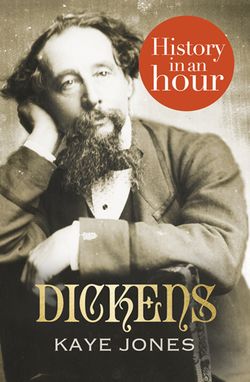Читать книгу Dickens: History in an Hour - Kaye Jones, Kaye Jones - Страница 8
ОглавлениеMiss Maria Beadnell
It was probably through his friend, Henry Kolle, that Dickens became acquainted with the Beadnell family. Kolle was engaged to Anne, one of the daughters of George Beadnell, a successful city banker. Dickens would often accompany Henry to dinner and other social occasions at the Beadnell house in Lombard Street and, by 1830, had fallen madly in love with Anne’s sister, Maria.
Dickens’ mind moved quickly to the topic of marriage and, more importantly, pondering the ways that he could prove himself a viable suitor to the socially superior Maria. Shortly after his eighteenth birthday, Dickens put his first idea into action and applied for a reader’s ticket at the British Museum. He devoted countless hours to furthering his mind, and potentially improving his chances of marrying Maria, through studying Shakespeare, the Classics and British history.
After flirting with his second idea of becoming an actor, the offer of regular work from his uncle’s newspaper, Mirror of Parliament, kickstarted his career as a journalist. In 1832 he was also taken on as a parliamentary reporter with a new evening paper called True Sun. Dickens quickly shone in his new position, establishing himself as an excellent reporter. Spending his days in the House of Commons also developed his social conscience. He became an ardent supporter of the 1832 Reform Act, which increased the number of people eligible to vote in Britain.
In the meantime, his attempts to secure Maria’s hand in marriage were seriously thwarted by her departure to a finishing school in Paris in the winter of 1831. While Mr and Mrs Beadnell found Dickens to be a polite and amiable young man, they had no intention of making him a part of the family and probably hoped that sending Maria away would prevent such a socially unsuitable match. For Dickens, the separation seems to have strengthened his feelings and her absence left him at a genuine loss. During that bleak winter, he spent his evenings aimlessly wandering the streets and observing the people and the comings and goings of the Seven Dials and the slums of St Giles.
Maria did, however, return to London in 1832, exciting a great deal of happiness and hope in Dickens. During his numerous visits to Lombard Street, he was coolly received by the family and struggled to secure time alone with Maria. He resorted to sending messages through various go-betweens, usually Henry Kolle or one of the household maids. At his twenty-first birthday party, he finally got the chance to speak to Maria in private but his declaration of love was coldly rebuffed, prompting him to write in a letter the following:
Our meetings of late have been little more than so many displays of heartless indifference on one hand; while on the other they have never failed to prove a fertile source of wretchedness and misery ... I desire the merit of having ever throughout our intercourse, acted fairly, intelligently and honourably; under kindness and encouragement one day and total change of conduct the next.
A final meeting with Maria occurred on 27 April 1832. Dickens had arranged an evening of theatrical entertainment at his parents’ house on Bentnick Street, to which the Beadnell family was invited. Maria appeared nonplussed by the entertainment, which Dickens had not only written, but also produced and performed. In a final letter, he wrote:
I will openly and at once say that there is nothing that I have more at heart, nothing I more and sincerely and earnestly desire, than to be reconciled to you ... I have never loved and I can never love any human creature breathing but yourself.’ Maria’s reply demonstrated that the cause was truly lost.
Like the Blacking Factory and his father’s imprisonment at Marshalsea, losing Maria was an immensely traumatic experience for Dickens. He would never forget the pain and humiliation of Maria’s rejection, and wrote that the experience imbued him with ‘habit of suppression’, which rendered him ‘chary of showing my affections, even to my children, except when they are very young.’
